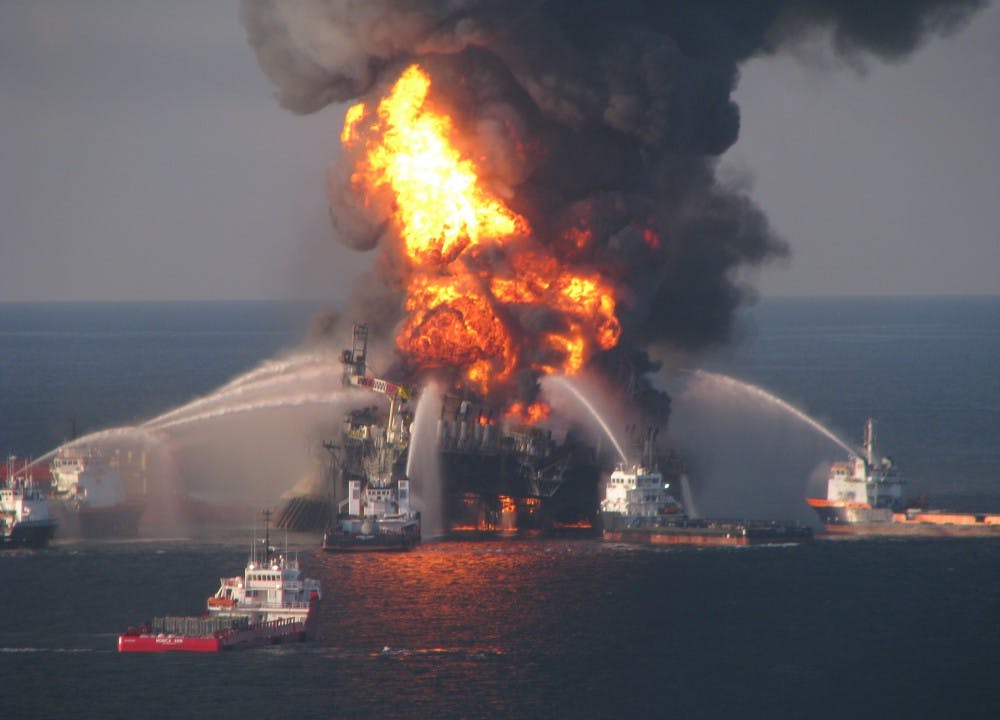The Trump administration, together with Secretary of the Interior Ryan Zinke, have been steadily moving forward on plans to expand coal and oil extraction in areas relatively untouched by the energy sector. Trump and Zinke, operating under the pretense of creating “wealth and jobs,” are attempting to roll back restrictions and regulations that were put in place to protect the environment and the people that depend on it.
While the creation of “wealth and jobs” may sound like a fantastic idea, Zinke’s plans will fall extremely short of expectations due to the decline of traditional energy sources and the massive environmental damage his plans will inevitably result in.
Since Zinke’s appointment, he has worked tirelessly to rollback regulations governing mining and resource extraction on federal lands. Last March, Zinke did away with the ban on mining coal on federal land. This past December, Zinke and Trump pressed forward on shrinking two national monuments in Utah to make way for mining and cattle interests. Just two weeks ago, Zinke proposed a plan that would essentially allow for offshore drilling in all U.S. waters. This startling trend of deregulation brings to bear many questions regarding just what good this will do for the American people. Can we expect more jobs? More energy independence? The answer, despite the claims of Trump, Zinke and others, is probably not.
Traditional sources of energy within the U.S., namely oil and coal, have been struggling in recent years to overcome the challenges modernization has brought to the U.S. and worldwide economies. Coal, for example, has been thoroughly eviscerated by the natural gas industry, which has begun to take on a larger and larger share of U.S. electrical production. Trump, Zinke and others have argued that the decline of coal was due to Obama’s so called “war on coal.” However, even Trump’s Department of Energy disagrees. Natural gas is simply cleaner, cheaper and more efficient than coal, and the energy sector has taken notice of that fact. Zinke’s absurd plans for expansion are nothing other than a band-aid on gunshot wound — coal will die regardless.
Oil, while not in nearly as bad of a situation as coal, is itself struggling, particularly with higher cost extraction techniques like offshore drilling. Offshore drilling is very expensive and requires years to set up. Furthermore, “exorbitant costs, flat prices, civic opposition, climate concerns and new transportation technology make major new offshore drilling enterprises, at least outside the Gulf of Mexico, unlikely.” The costs are simply too high for many oil companies to even consider expanding operations, particularly as the future of the oil market remains uncertain.
Given both of these factors, it makes little sense for Trump and Zinke to be pushing forward on any of their plans of increasing extraction, particularly from an economic perspective. But this only considering the markets. The future success of their plans, when considering the externalities of expanding extraction, look much more grim.
One of the primary objectives of Trump and Zinke’s deregulation push has been to roll back environmental protections related to resource extraction. They believe, as mentioned before, that these regulations strangle the energy sector. However, many of these regulations where put in place not to damage the industries, but to protect the environment and the people who rely on it. As such, removing these regulations poses a massive economic and environmental risk.
In December, the Trump administration proposed trashing the offshore drilling safety regulations that were put in place following the massive BP Deepwater Horizon oil spill in 2010. Such a move saves oil company’s money, yet places many Americans at risk. The overall cost of the spill, even outside of long term environmental damage, was roughly $61.6 billion. The spill also resulted in massive economic damage along the Gulf Coast as tourism plummeted in the months following the spill. Zinke arguing for an increase in offshore drilling while, at the same time, attempting to roll back safety regulations is a massive game of Russian roulette that could irreparably damage coastal economies.
The expansion of coal extraction poses risks as well. Coal mines have been notoriously lax in the protections they provide to local water sources and contamination is common. In 2014, 300,000 West Virginia residents lost access to clean drinking water after a chemical spill by a coal mine on the Elk river. The spill also cost local businesses $61 million. While such incidents are larger than standard issues of contamination, this doesn’t mean that contamination isn’t widespread, in fact “a study in the journal Science in 2010 found that 73 of 78 West Virginia streams in mountaintop mine removal areas had selenium levels higher than the official threshold for fish life.” Clearly, coal mines contaminate their local area, impacting residents and damaging local economies, something that will only get worse under Zinke’s expansion.
Trump and Zinke’s proposed expansion of coal mining and offshore drilling, despite the claims of “wealth and jobs,” will offer no such thing. The long term economic prospects of oil and coal are both declining and the costly externalities of their environmental damage are massive. No wealth and no jobs will come of these plans, only poisoned water and corporate kickbacks.

